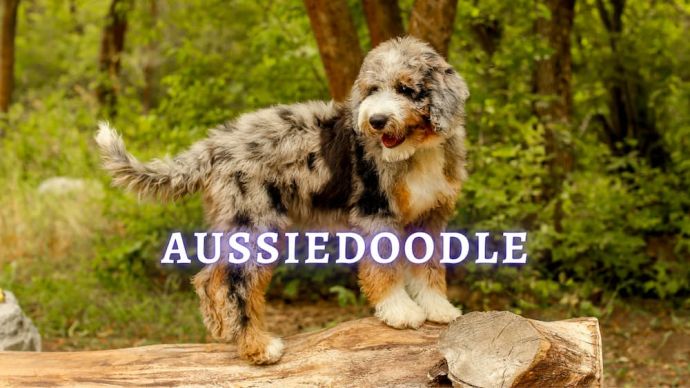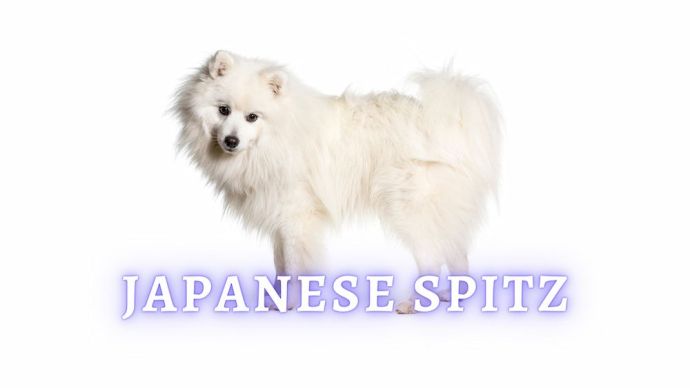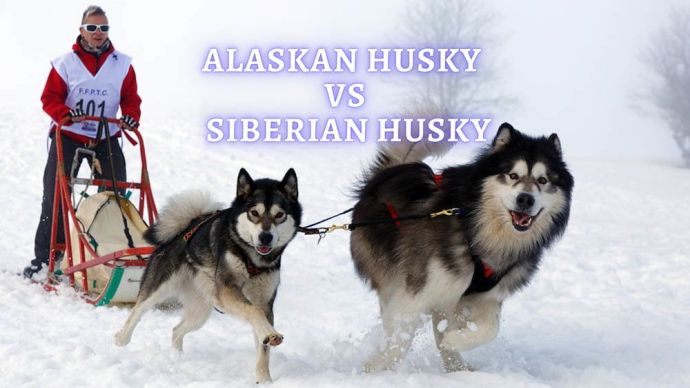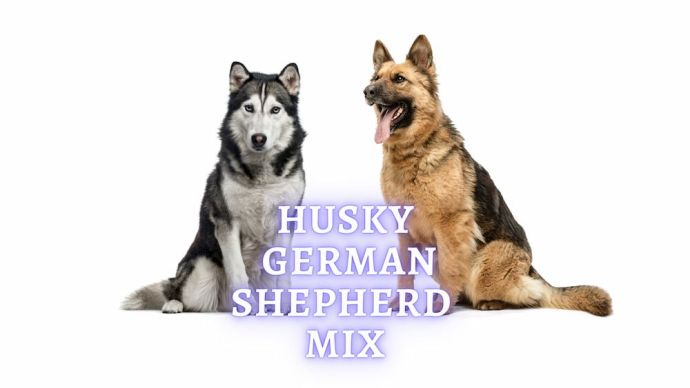Shorkie: All About Shih Tzu and Yorkshire Terrier Mix
Written by:
Author: Seb Jenkins
Seb is a professional SEO writer with a degree in Journalism, he has five years of experience in writing and editing. Seb specializes in topics like dog and cat breeds, aquarium guides, and pet care. He is passionate about educating and entertaining animal owners worldwide. In his spare time, Seb enjoys writing fiction novels.
View all 83 articlesLearn about our editorial process and veterinary review board.
Viewed: 661
Updated on: 06/08/2023
As some of you might have guessed, the Shorkie dog breed is a crossbreed between the Yorkshire Terrier and the Shih Tzu. Two of the most famous and most popular small dog breeds globally, the Shorkie is, of course a very desirable crossbreed dog. They are known for their big personality, despite the small package, and are very energetic and fun-loving dogs.
For anyone looking to welcome a Shorkie into their home, or anyone who recently has, it is important to research information about the breed to ensure you are fully capable of taking care of your new best friend.
Fortunately for you, we have created an all-you-need-to-know article on the Shorkie below. Enjoy!
Characteristics
The following are the main characteristics shown by the Shih Tzu Yorkie mix:
| Height | 6-11 inches |
| Weight | Male: 5-11 pounds Female: 4-8 pounds |
| Lifespan | 11-16 years |
| Size | Small dog |
| Coat | Medium/long |
| Colors | Black and Tan, Brown and White, Gold, Red or Gold, Black and White |
| Shedding | Infrequent |
| Temperament | Feisty and energetic |
| Intelligence | High |
| Social skills | Good with older kids, families, seniors, and animals (if raised with them from a young) |
| Barking | Frequent |
| Children | Suitable for older children |
| Energy levels | Moderate to active |
Breed History
Shorkie dogs originated in the United Kingdom and come from Yorkshire Terrier and Shih Tzu’s parents. Crossbreeding between these two was originally done in order to remove unwanted characteristics, such as health issues, and produce puppies with the best traits from each parent.
READ MORE: All About Morkie
Shih Tzu’s originate in China and are said to have been around in some shape or form for about 2000 years. They are purebred dogs and earned the nickname Lion Dog due to their courage in the face of danger. Despite their small size, they were even used as guard dogs in royal courthouses. Even though they can be courageous and fierce when needed, they are also very gentle dogs and quick to make friends.
Yorkshire Terriers, much like the Shorkie cross, come from the United Kingdom. They are among the most popular dog breeds in Britain and originated in the British countryside. They were also used as guard dogs, protecting the family home not against human intruders but rodents. They are always extremely eager to help and please their owner.
Interesting Facts
- The Yorkshire Terrier and Shih Tzu were originally bred as neither shed much and both are very popular.
- The Shorkie is not recognised by any Kennel Club as they are a hybrid breed.
- The Shorkie is recognised by The Designer Breed Registry.
READ MORE: All About Chihuahua and Terrier Breeds Mix
Temperament and Personality
The Shih Tzu Yorkie Mix is a perfect example of a big personality encased within a small dog. They are full of energy and playful nature, making them an amusing pet to have around. They are equally at home in an adult-only household, a family home with children, or other dogs or cats. The Shorkie loves nothing more than a short outburst of energy, so having room for them to sprint around the house is a bonus. However, while they can be a pleasure at their best, they can be a pain at their worst as the Shorkie is a bit of a diva. If they don’t get their own way, they can throw a dog tantrum and are incredibly stubborn in this respect.
In modern times, the Shorkie is bred as a companion dog and goes above and beyond to impress/help their owner. Both the Yorkshire Terrier and Shih Tzu and being lap dogs are known as Velco dogs. As the name suggests, this means they can be very clingy. In fact, coming from two clingy parents, the Shorkie is even more Velcro-like. This is one of the most important aspects to be aware of before you get a Shorkie. Some people love having the little fella following them around everywhere, while it is far too intense for other owners. If you are happy for them to be glued to your ankles throughout the day, then continue.
This brings us on to one of the biggest problems with the Shorkie. Their clingy nature means they do not like to be left alone for long periods. As such, they are best suited to someone who will be home most of the time or a family where at least one person is around. They are not well suited to a single owner who goes out to work from 9 am to 5 pm every single day. The one bonus is that the Shorkie is small enough to fit in your handbag if you do need to take them out and about with you.
The Shorkie is fiercely loyal and always on the lookout for potential danger, largely thanks to the guard dog history of both parent breeds. As such, the Shorkie is a frequent barker, using their voice to alert you to any potential danger. While they may not be big enough to scare off an intruder, they can definitely make a noise and alert you to them. If you want a small guard dog, look no further. If you want a quiet dog… keep looking.
It can take the Shorkie some time to warm up to people they have never met before. Barking can also be used as a sign of distrust, so you may notice this when they meet strangers. However, once they do warm up to someone and begin to trust them, they are lovely and friendly dogs.
| Category | Rating (out of 5) |
| Adaptability | 4 |
| Adapts to apartment living | 4 |
| Energy levels | 4 |
| Adapts to being alone | 1 |
| Tolerates cold weather | 4 |
| Tolerates hot weather | 1 |
| All-around friendliness | 4 |
| Affectionate with family | 5 |
| Kid-friendly | 2 |
| Dog friendly | 3 |
| Cat friendly | 3 |
| Friendly with strangers | 2 |
| Health and grooming | 4 |
| Shedding | 2 (does not shed much) |
| Drooling | 2 (does not drool much) |
| Easy to groom | 4 |
| Easy to train | 2 |
| Exercise needs | 2 |
| Intelligence | 5 |
READ MORE: How to Stop Dog Barking at Night?
Activity and Exercise Requirements
Compared to the average dog, Shorkies do not need much exercise. However, the average toy dog needs a little more than normal at around 30 minutes compared to the average toy dog. Half an hour of exercise outside the home per day should be enough as the Shorkie is prone to energy outbursts throughout the day which often wears them out. As we explained above, the Shorkie can be very stubborn and throw tantrums if they do not get their way, which can be the case when going for a walk. If they do not want any more exercise, they will try to persuade you not to go outside. However, they need 30 minutes per day, even if sometimes they do not want to leave the comfort and warmth of the home.
While exercising your Shorkie, be on the lookout for any struggles with breathing. Due to a common Brachycephalic condition, most Shorkies have breathing issues anyway, so it is something you need to keep an eye on. The last thing you want to do is overwork your little dog. If it is a hot day, try to walk them in the early morning or late evening when it is cooler and the sun is not as bright. If you still think it might be too hot even at those times, forget about exercising them altogether. It’s always better to be safe than sorry with a Shorkie.
Fortunately, the Shorkie can adapt to all kinds of lifestyles, including small apartments, large houses, and pretty much everything that falls between those. They really don’t care too much about their surroundings, as long as they receive lots of love and affection from their owners, as well as some tasty food. As we said before, having enough space for them to sprint around when they have their outbursts of energy is ideal. It is also worth mentioning that these small dogs can fit through the tiniest of gaps (trust us, you would be surprised), so be sure to check your home and garden, making sure there are no escape routes.
Due to their small size and delicate frame, the Shorkie is best suited to older children. Younger kids may get overexcited and hurt the small dog, even without meaning to. Once a child is old enough to understand the size of the dog and how to handle them, it is safe for a Shorkie to live with them. In terms of other animals, Shorkies are more than happy to share their home as long as they grow up with the other animals. However, if the Shorkie grows up alone and then another pet is introduced at a later date, they may get protective of their space and be less than welcoming. Shorkies are also not big fans of playmates.
Feeding and Diet
In general, a Shorkie will eat around one cup of food per day. This food should be given to them across multiple meal sittings throughout the day to ensure a consistent blood sugar level. This is due to their prevalent Hypoglycemia issues. It is essential to feed them on a diet of high-quality kibble, ensuring that this food contains all the necessary nutrients. We recommend buying food that is specifically designed for toy dog breeds. Not only are these foods designed to be healthier for toy dogs, but the biscuits are also smaller to fit into their mouth.
As with any dog, your Shorkie’s diet will change as it grows from a puppy into an adult and then into old age. It is always a good idea to ask your vet about your specific Shorkie during your next check-up and ask them for recommendations as there is some variation from dog to dog when it comes to Shorkies.
READ MORE: The Best Dog Food for Shih Tzu (Vet Approved Review)
Grooming and Shedding
Shorkies have medium to long hair, just like their Yorkshire Terrier and Shih Tzu parents. However, most owners generally like to keep this hair nice and trimmed. Not only does this look neater, but it is also easier to keep clean, especially as the Shorkie’s hair grows very fast. In most cases, the Shorkie needs to be clipped once every eight weeks or so. In terms of general grooming, we recommend that you brush their hair once every couple of days in order to prevent it from becoming tangled or matted. You also need to clean your Shorkie’s teeth once per week at the very least due to their prevalent periodontal diseases. You can purchase specific toothbrushes and doggy toothpaste for this job, taking care to reduce the chances of plaque build-up. After all, replacing that nasty dog breath with minty freshness is also a bonus for you!
Known Health Problems
Unfortunately, there are a few known and common health problems when it comes to the Shorkie dog breed. One of these is called Patella Luxation, which involves the dislocation of the kneecap, resulting in a whole lot of pain for the Shorkie.
Both the Yorkshire Terrier and Shih Tzu often suffer from Portosystemic Shunt, which involves the kidneys being unable to detoxify waste. This eventually causes a build-up of toxins in the body, becoming fatal. Both parents can suffer from it, it is undoubtedly a notable risk for Shorkies.
Shorkies are also often regular visitors to the eye doctor. They suffer from a range of different conditions, including Lens Luxation and Glaucoma – which can also be linked.
As we mentioned above, the Shorkie can also suffer from dental issues, mainly down to their small mouths and jaws. These can include overcrowded teeth and periodontal diseases.
Smaller dogs can often suffer from Hypoglycemia, as we mentioned above, which can be fatal if not dealt with properly as it revolves around an inability to store enough glucose in the body.
Shorkies, mainly due to the Shih Tzu parent, have breathing problems too, professionally called Brachycephalic dogs. Due to the short muzzle and flat face, the Shorkie can find it tricky to breathe, which is only exasperated during exercise and in hot weather. As we explained before, you need to keep an eye on their breathing and calm them down if you notice a difference. Never walk them in hot conditions.
Training
Shorkie dogs are very intelligent, meaning they are able to learn and train, however, that does not guarantee they will want to. As we have said many times, these are very stubborn little dogs. If they do not want to do your agility course, they will not do your agility course. This comes from both parent breeds. It can make them a very difficult dog to train, which is frustrating, but you can’t force them to do something they do not want to do. Purchasing some small toys specifically designed for small dogs should help to burn some of those energy outbursts.
Having said that, experts have found that clicker training is helpful when it comes to training stubborn dogs, so we recommend researching that a little. However, positive reinforcement is perhaps the best way to get a Shorkie to train when they don’t particularly want to. Basically, put some treats on the line. Keep the training sessions light and entertaining, with rewards and treats to keep them interested. While they are very stubborn, you have to be very determined and patient. After all, the worst thing to go with a stubborn Shorkie is a Shorkie that does not listen to you.
We recommend that you socialize your Shorkie with other dogs or pets as early as possible. The more they grow up with other animals around, the more receptive they will be to them. Of course, you want your Shorkie to be friendly with other dogs, even if it’s just while you are out and about on walks. The Shorkie may look very fragile and weak, but they are capable of causing plenty of harm to other dogs if they want to. It is important to make sure they do not become too overprotective of you, as this can lead to aggressive behavior when other animals are around.
Adoption and Breeders
The most direct route to sourcing a Shorkie is via a breeder, and this is especially the case if you have your heart set on a puppy. Many reputable Shorkie breeders provide regular litters. However, we urge you to check your local adoptions and rescue centers first to see if you can give a home to a lovely Shorkie. Of course, that is your choice.
To find the best breeder for Shorkie puppies, we recommend that you research online for your local options. There should be reviews for each breeder, so you can see who has a good reputation and should be avoided, and their activity looks like a puppy mill.
Conclusion
And there we have it, our complete guide to the Shorkie dog. This should give you all the starter information you need to confidently decide whether you want to adopt or purchase a Shorkie. Feel free to refer back as you welcome the new dog into your home for tips on training, health, exercise, and more. We wish you all the best with your new best friend!
FAQs
Why shouldn’t you buy a Shorkie?
Shorkies are great dogs, but you should not buy them if you have young children who could hurt them due to their size. You should also avoid them if you are out of the house for long periods of time as they do not deal well with being left alone.
Is a Shorkie a good dog?
A Shorkie is a great dog – but only if it fits into your lifestyle. They are very clingy and need an owner or family who is always around. Have a read of our article above to find out if the Shorkie is a good fit for you.
Is a Shorkie hypoallergenic?
Shorkie coats do not often shed and so they are considered to be hypoallergenic, yes.
How much does a Shorkie cost?
A Shorkie puppy will cost between $300-$1,000. However, we urge you to do your research and find a breeder with a good reputation.
What kind of dog is a Shorkie?
A Shorkie is a cross between a Yorkshire Terrier and a Shih Tzu. They are considered to be small lap dogs.
 Dog Breeds Fluffy Dog Breeds: 9 Popular Fluffy Dog Breeds from Smallest to Biggest
Dog Breeds Fluffy Dog Breeds: 9 Popular Fluffy Dog Breeds from Smallest to Biggest - 300
- 0
 Dog Breeds Aussiedoodle: Breed Info, Personality, Activity Level and Life Span
Dog Breeds Aussiedoodle: Breed Info, Personality, Activity Level and Life Span - 1171
- 0
 Dog Breeds Japanese Spitz: Everything about Japanese Spitz Health, Care, Puppies, and more
Dog Breeds Japanese Spitz: Everything about Japanese Spitz Health, Care, Puppies, and more - 1086
- 2
 Dog Breeds Alaskan Husky vs Siberian Husky: How can you tell an Alaskan Husky from a Siberian Husky?
Dog Breeds Alaskan Husky vs Siberian Husky: How can you tell an Alaskan Husky from a Siberian Husky? - 111
- 0
 Dog Veterinary Tips Why is my Dog throwing up: Causes and Preventing (Veterinary Advice)
Dog Veterinary Tips Why is my Dog throwing up: Causes and Preventing (Veterinary Advice) - 21800
- 5
 Dog Care My Dog Keeps Scratching His Mouth: Reasons Why Your Dog Scratching Face
Dog Care My Dog Keeps Scratching His Mouth: Reasons Why Your Dog Scratching Face - 17168
- 1
 Dog Care Why Is My Dog Bleeding From Its Butt? Causes and treatment of rectal bleeding in the dog
Dog Care Why Is My Dog Bleeding From Its Butt? Causes and treatment of rectal bleeding in the dog - 15103
- 0
























